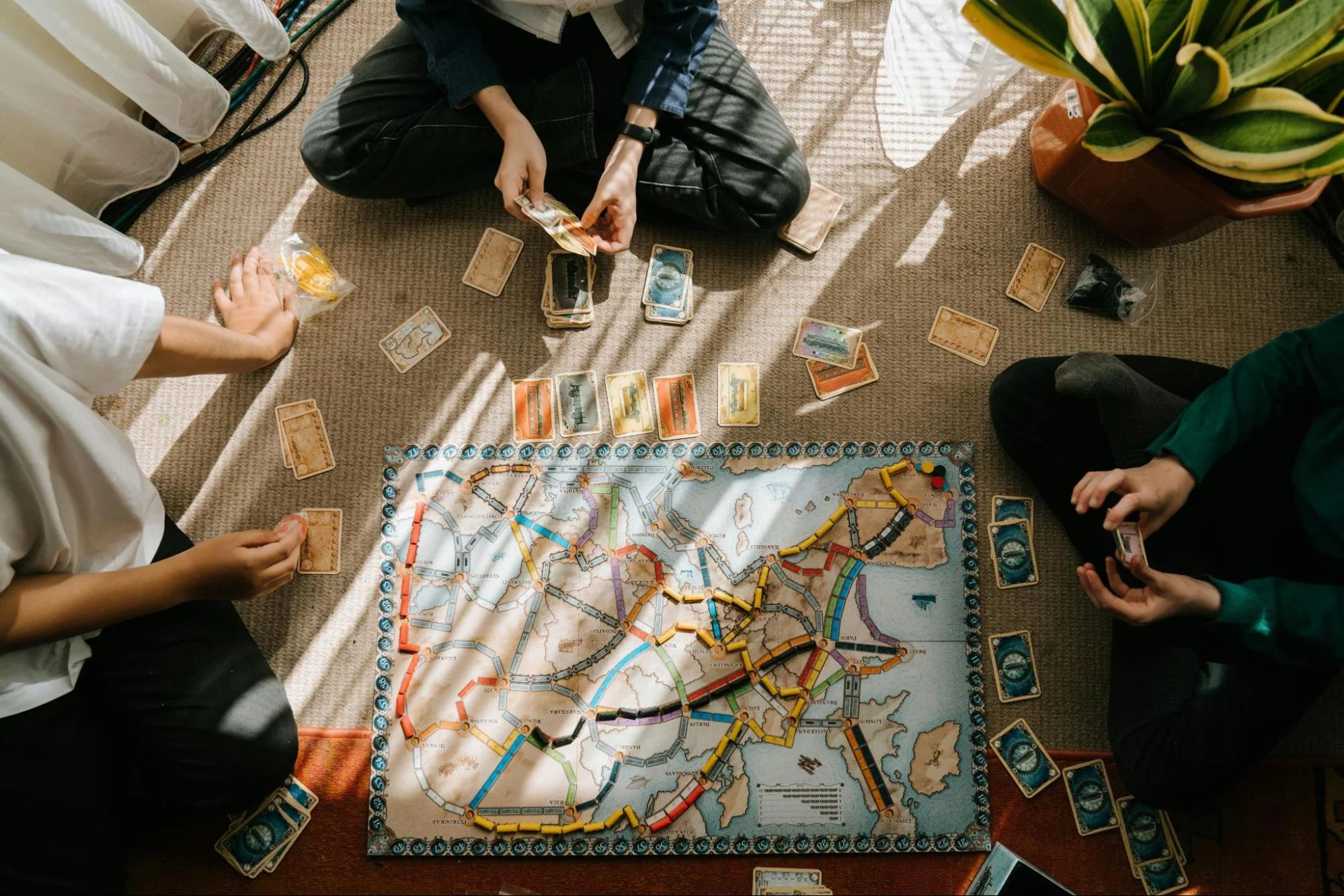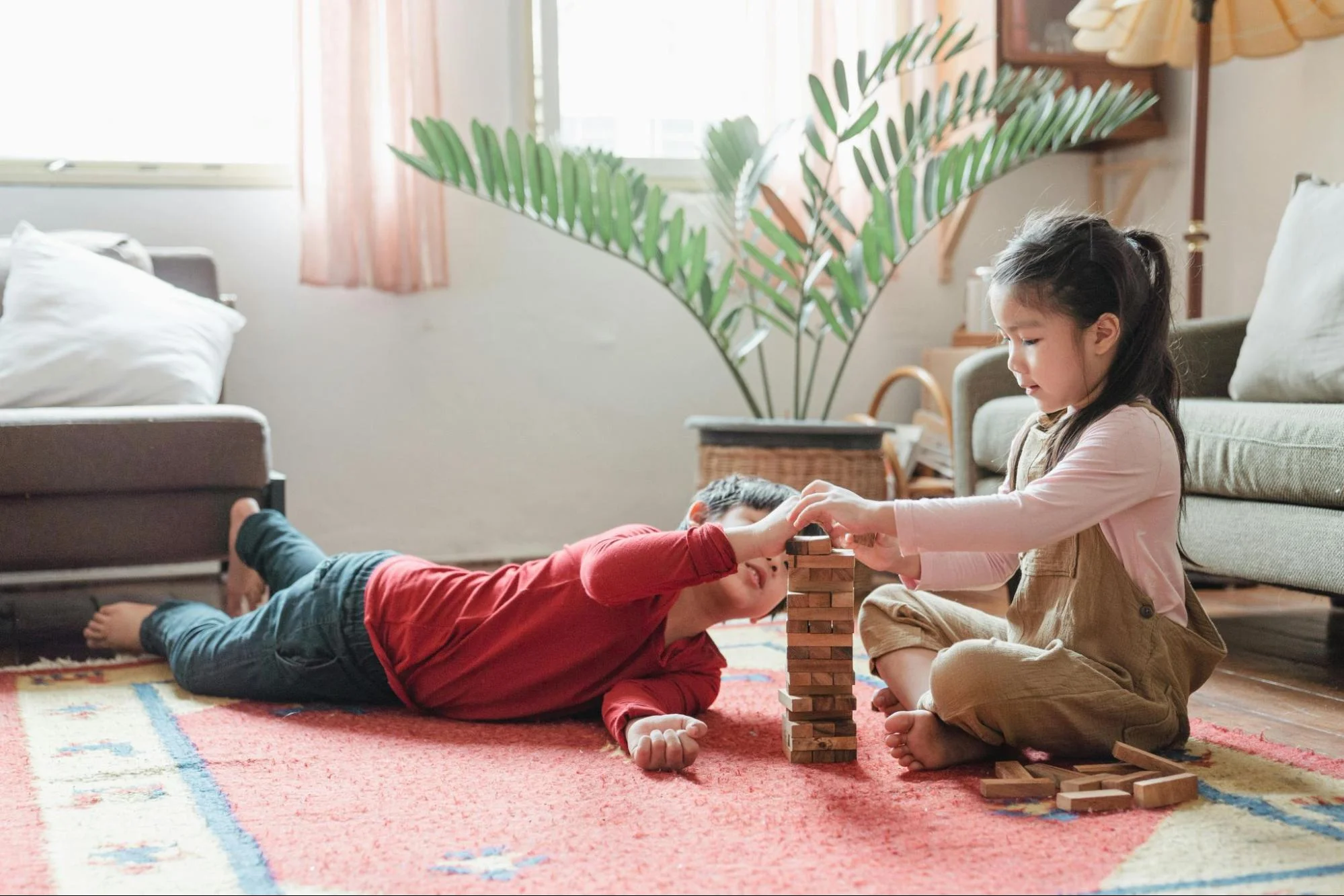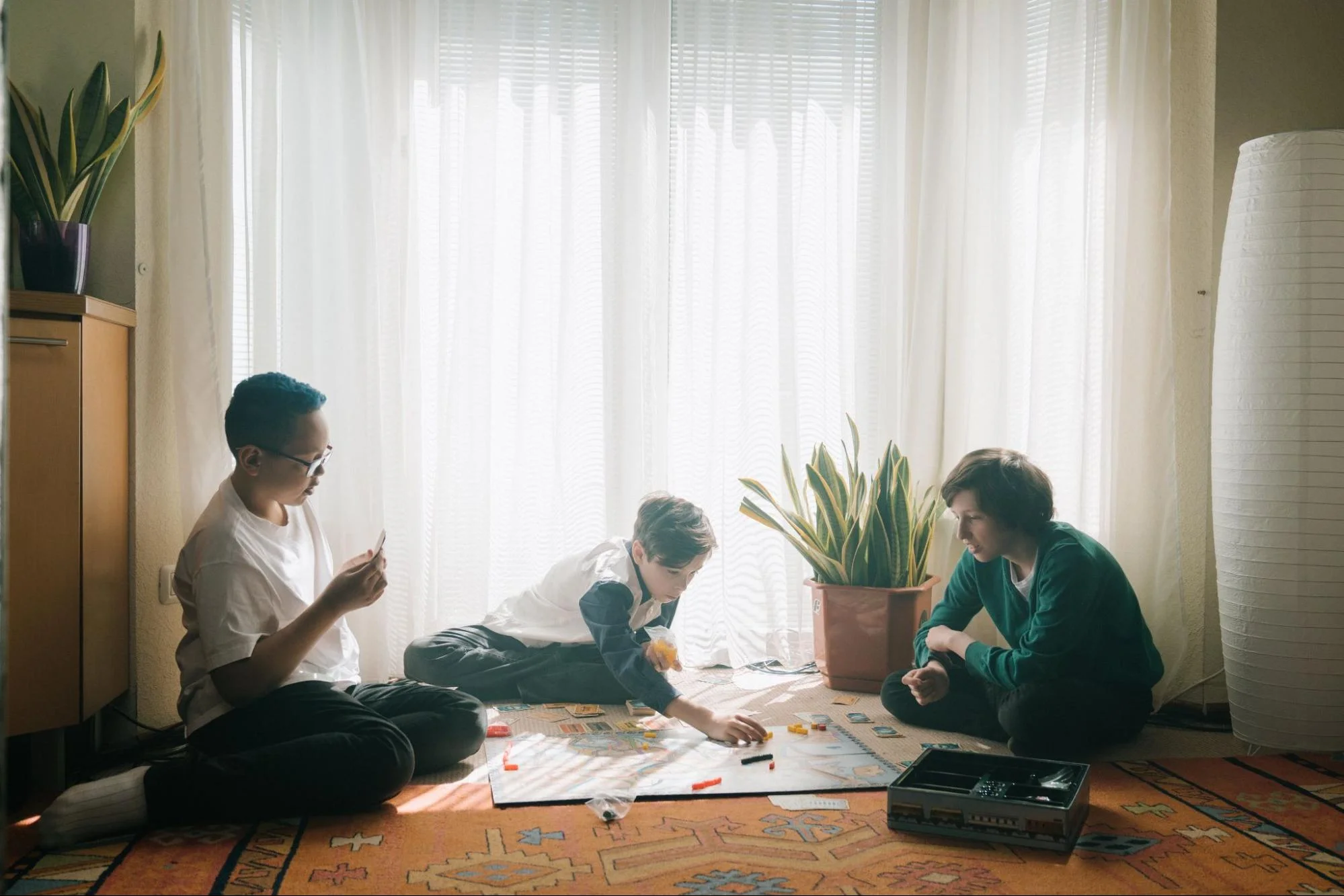

Do you need ideas on how to spend quality time with family with equal interaction and enjoyment? Then, board games for kids might just be your solution because they could be an entertaining and fascinating way to sit together as a family and have light-hearted moments, drifting away from all the hustle and bustle of life.
But pick the correct type of board game since no one wants to play a game that becomes so extremely dull and dreary after a little while.
We’re here to help you find the perfect one for kids. Here is a guide on how to choose a board game for children:
- Older children find it hard to come back to it and play.
- If the game is too simple, keep it for a quick play game or just pass it on to someone with younger children.
- If you don’t like it at first go, read the instructions or watch a video and give it another shot. You might understand the game better and how it works.
Before we move ahead, on how to choose the right board game I would suggest checking out Moonpreneur – the ultimate mix of education and fun in the entrepreneurial board game world. It’s not just a game; it’s your ticket to business strategy brilliance.
Moonpreneur teaches children entrepreneurship.
Nonetheless, let us proceed with how you decide the best board games for children. Below are some aspects that need to be considered before one settles on board games for Kids:
I have a dream that my four little children will one day live in a nation where they will not be judged by the color of their skin, but by the content of their character
– Martin Luther King, Jr.
1. Number of People Playing

You’ll find so many games when you go around choosing games for kids out there, which can be played both with a single player and numerous players. Some board games are fixed in the number of participants, while some are flexible. Always look at the box before getting a board game to confirm it is according to your preference. The box should tell you the number of players, for example.
- 2 players: 2 players only
- 2-5 players: a minimum of 2 players to a maximum of 5 players
- 2+: at least 2 players with no maximum (these are often team games)
2. Attention Span

Is the game interesting enough to hold the children hooked till completion? The time for games is varied between minutes and days. If you have small children, you may want to pick games with a short attention span and give quick results.
You don’t want your little ones to feel that the game is too long and dragging them to their limits. However, older children would probably enjoy games with a longer duration.
Please take a moment to explore this blog: 15 Creative Ways To Spend Your Summer Vacations
3. Focus

Focus is a very important aspect of a game when choosing a board game for 8-year-old children, as it truly signifies the ability of it to keep everyone involved. Is the game good enough for children to not wander off when it is not their turn and they’re not actively involved?
No one wants to feel bored and dreary while it is someone else’s turn and you can’t just keep bringing people back to the table. If this is the case, you should consider games with spontaneous action, where all players are involved at all times.
Please take a moment to explore this blog: Summer Camp Essentials: Things You Need To Pack
4.Theme

If your child has an interest in one particular topic, then prefer the game that is along the lines of that theme. The theme of board games varies as well, and it’s best to find out what theme your child is inclined toward so that they enjoy playing.
 This statistic from thebusinessresearchcompany.com gives information about the Playing Cards and Board Games market size for 2024, along with its predicted growth rate.
This statistic from thebusinessresearchcompany.com gives information about the Playing Cards and Board Games market size for 2024, along with its predicted growth rate.
The board games industry is growing consistently as different types of board games target all age groups and interests. Major statistics are as follows:
- Global board game market was recorded at $11.88 billion in the year 2022.
- Revenue from the board game market generated $8 billion in the year 2022.
- More than 20,000 board game publishers operate in the year 2020.
- Asmodee has the maximum share globally at 18%.
- In the year 2024, more than 150,000 games are recorded on BoardGameGeek.
- Chess is the most popular board game, with 3 million sets sold annually in the US.
- 50.6% of US adults enjoy board games for socializing.
 The graph provided by https://wordsrated.com/board-games-statistics/ below illustrates the projected global board game market value from 2022 to 2030.
The graph provided by https://wordsrated.com/board-games-statistics/ below illustrates the projected global board game market value from 2022 to 2030.
5. Game Play

In shortlisting the best board games for kids, you would remember the type of games that your kids have played so far and do not like. It would give you a sort of idea about their preferences. The gameplay is the very important factor while deciding upon the right board game for your child.
Please take a moment to explore this blog: 10 Summer Break Outdoor Activities for Kids
6. Competition

Does your child have a competitive spirit? Then look out for games that allow them to pit against other participants and compete. It is not bad to be a winner. If this is not the case, then there are a number of co-operative games on offer as well.
Please take a moment to explore this blog: Eight Ways Art Can Enhance Creative Thinking in Kids
7. Complexity

When choosing the best board games for kids, there needs to be taken into account the complexity that varies from game to game and it should be appreciated for the right amount for the child. Some rule books are longer, and most of them need remembering all the rules and conditions by heart. Deep thinking is required, along with good planning and the sequence in which turns must be given. Determine if your kid likes games with action movements or slow ones before purchase.
Please take a moment to explore this blog: Top 10 Afterschool Enrichment Activities For Kids
8. Space to Play

While choosing a board game for an 8-year-old, one should also keep in mind how much space one has or how much space is willing to provide the game. Can one just leave the game as it is and come back later if it is not finished in one sitting? If you have limited space, then it gets a bit squishy to have games with a big game board and cards scattered around. So, choose a game that fits well in the provided space.
Board games are enjoyed globally, offering something for all ages and player types. Despite the rise of new technologies, their social nature has kept them popular. Key trends in the industry include:
- The global board game market was estimated at $11.88 billion in 2022.
- Revenue for the same year was $8 billion.
- There are more than 20,000 publishers and 150,000 game titles.
- Chess is still the most popular game with 3 million sets sold annually in the US.
- 50.6% of US adults value board games for socializing.
- Word games are the favorite for 47.2% of US adults.
- 82% of US adults consider Chess as a game of skill, while 54% consider Chutes and Ladders as a game of luck.
Furthermore, 3% of US adults confess to cheating or quitting when losing.
Finally, the last and most important thing to say is don’t limit yourself to “children’s games”. Expand your and your child’s gaming experience.
How to choose the right board game? If you have some suggestions or tips, let’s discuss them in the comments below.
Please take a moment to explore this blog: Age of Automation: Is Your Child Ready?
Moonpreneur is working on disrupting traditional education and future-proofing the next generation with holistic learning solutions. Its Innovator Program builds tomorrow’s workforce by training students in AI/ML, Robotics, Coding, IoT, and Apps that enable entrepreneurship through experiential learning.
Update: This article was last updated on 13th January 2026 to reflect the accuracy and up-to-date information on the page.
























